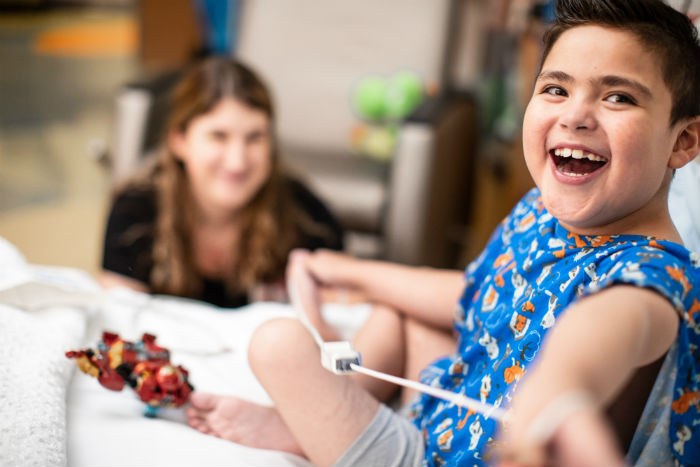

You may have heard that some cancers result from a “faulty” gene or a “spelling error” in a gene, but what does this really mean?
We each have 23 pairs of chromosomes for a total of 46 chromosomes. One of each pair of chromosomes comes from our mother (or the “egg”) and the other comes from our father (or the “sperm”). Chromosomes are made up of genes, which are instructions, or “recipes,” for how to make different proteins. The cells in our bodies use these proteins to carry out different jobs. With regard to cancer, there are genes that code for proteins whose job is to control a cell’s life cycle or ensure the correct spelling of genes. If there is a change (mutation) in the gene that interrupts the code, the protein cannot be made correctly and the ability to control a cell’s life cycle is impaired which may result in cancer.
Most cancers are non-hereditary, which means that an individual is not born with a gene change (mutation). With a non-hereditary cancer, a change occurs inside a cell which causes it to lose its ability to control the cell’s life cycle. This type of change is called a somatic mutation and is not inherited from generation to generation. When an individual is born with a mutation in a gene that predisposes to cancer, the mutation is known as a germline mutation. Unlike somatic mutations, germline mutations are usually present in all the cells of the body.
Individuals with a germline mutation predisposing to cancer may inherit this mutation from one or both parents. Cancer predisposition syndromes usually become apparent when an individual develops cancer at a young age, has a specific type of cancer or bilateral cancer (such as both kidneys or both eyes), or when multiple family members have the same type of cancer or related cancers.
When an individual has a tumor predisposition syndrome, it does not mean that the person will definitely develop cancer. It means they have a higher risk (or chance) of developing cancer compared to someone without that mutation.
Some individuals have no family history of cancer and may be the first person in their family with a cancer predisposition syndrome. Oftentimes this is due to a new mutation in that individual that did not come from a parent.






